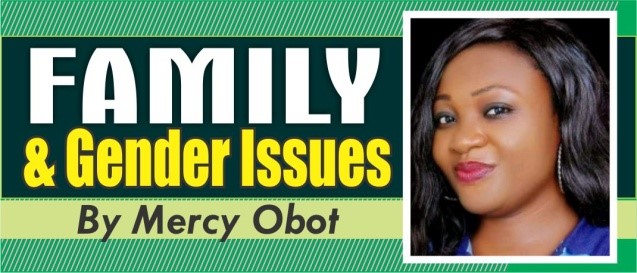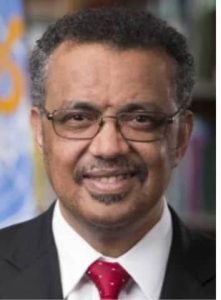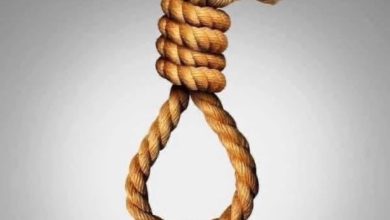Unsafe Abortions In Nigeria: Shared Responsibility, Legal Reform, And The Urgent Need For SRHR
By Mercy Obot

When abortion is mentioned, what is the first thing that comes to your mind? Would you say the major cause of the issue lies with women? Or do you pause to think about the men whose actions and silence often push women toward such a painful decision?
It is no longer news that the surge of abortion cases in Nigeria is mostly attributed to women, as though they carried the pregnancy alone. Meanwhile, men who are equally responsible are often left out when such a deeply gender-sensitive issue is discussed. But what if the tables were turned? What if both men and women were held accountable for the very act that is perceived as an abomination, not only by law but also by the powerful grip of religious dogma in the country?
Perhaps after these questions, the conversation about abortion in Nigeria will finally move beyond the stigmatisation of women and toward a discourse of accountability and shared responsibility between both men and women. At the same time, it must be remembered that women have reproductive rights, and any decision taken must prioritise their health and well-being first, especially as the process of abortion is being considered.

Director-General, World Health Organisation (WHO).
Men Are Also a Cause of Rampant Abortions
Men are not often spoken about when abortion is discussed, yet they remain a driving force behind many of the cases happening daily. Speaking to women under the condition of anonymity, heartbreaking stories emerged.
One lady, who was seen arguing with her lover, revealed that she had undergone five abortions because he repeatedly persuaded her to terminate each pregnancy, refusing to use protection or accept responsibility. Another woman shared that her long-time boyfriend forced her into an unsafe abortion, after which she has not seen her menstrual cycle, leaving her in constant fear that she may never be able to give birth again.
Although one woman bravely refused to abort her child, she recounted how her boyfriend coldly told her to “let go of the foetus” because he was not ready to be a father.

Minister of Health, Nigeria
Beyond these tragic cases, some women were raped and, to avoid stigma, turned to unsafe abortions that left them with serious medical complications. There are also painful accounts of incest, where young girls were forced by their own fathers to undergo dangerous procedures to cover up unspeakable crimes.
In many cases, pregnancies are outrightly denied by men, leaving women with impossible choices, either to “feast with the devil” by risking unsafe abortion or to “drown in the deep blue sea” by facing shame and abandonment.
Worrying Statistics
A recent study by Performance Monitoring for Action (PMA) found that about 4.6 per cent of women of reproductive age (15–49) in Nigeria have an abortion each year, amounting to roughly two million cases annually. About 63 per cent of these procedures are unsafe, contributing to around 10 per cent of maternal deaths in the country; an estimated 6,000 women die each year as a result.
Another research highlighted that approximately 212,000 women sought medical care for complications from unsafe abortions. In addition, around 285,000 women suffered serious health consequences but did not receive the treatment they needed.
Read Also: Police Arrest Suspected Fake Doctor Over Alleged Illegal Abortion, Murder
Overall, studies indicate that one in every seven pregnancies in Nigeria ends in an induced abortion, underscoring the scale of the crisis and its devastating impact on women’s health.
According to the Guttmacher report, between 2015 and 2019 in Nigeria, there were an average of 10.5 million pregnancies annually. Of these, about 2.99 million were unintended, and 1.43 million ended in abortion.
Sadly, unsafe abortions are disproportionately experienced by poor, uneducated and rural women, making them the most vulnerable to life-threatening complications.
The World Health Organisation (WHO) defines unsafe abortion as the termination of an unwanted pregnancy “either by persons lacking the necessary skills or in an environment lacking the minimal medical standards, or both.”

President, Nigerian Medical Association
Harsh Laws, Male Irresponsibility, and Denial of Reproductive Rights: The Deadly Drivers of Unsafe Abortions in Nigeria
One of the major reasons many women are pushed into unsafe abortions is the harsh legal restrictions in Nigeria, where abortion is permitted only when it is necessary to save a woman’s life. But what about the countless other situations like rape, incest, poverty, or denial of responsibility by men, where women are left with no safe options? These restrictive laws do not stop abortions from happening; instead, they coerce women into dangerous backdoor procedures that often end in tragedy.
Consequently, unsafe abortions have fuelled rising maternal mortality rates, as unqualified practitioners step in to provide unsafe medical services. According to the World Health Organisation (WHO), unsafe abortions pose severe health risks such as incomplete abortion (failure to remove or expel all pregnancy tissue from the uterus), haemorrhage (heavy bleeding), infection, uterine perforation (caused when the uterus is pierced by a sharp object), and damage to the genital tract and internal organs due to the insertion of dangerous objects into the vagina or anus.
Beyond the medical risks, these restrictive laws deny women comprehensive reproductive rights and prevent vulnerable girls and women from accessing safe abortion services. As a result, women are stripped of the right to make safe decisions about their bodies, and this deepens the crisis.
These tragic realities also reflect the negligence of men who deliberately transfer the burden to women alone by not providing support, compassion, or responsibility. Perhaps if men were held more accountable through shared responsibility, there would be safer sexual practices, stronger support for contraception, and greater willingness to stand with women in difficult reproductive decisions. Through such a tangible support system, the cycle of unsafe abortions could finally be broken.
Abortion Care Guidelines and SRHR: A Pathway to Advancing Sexual and Reproductive Health and Rights
To reduce maternal mortality caused by unsafe abortions, there is a pressing need to strengthen Sexual and Reproductive Health and Rights (SRHR) in Nigeria. One effective approach is through the implementation of the Abortion Care Guideline. According to WHO, this guideline emphasises that women with unintended pregnancies should have access to the full abortion care pathway, like pre-abortion, abortion and post-abortion, delivered through health services that are free from discrimination.
The guideline also provides specific recommendations on the interventions required, as well as clear guidance on the individuals who are qualified to safely provide them. In addition, it outlines the appropriate locations where services can be offered, the models of service delivery that can be applied, and the importance of a supportive, universally accessible, affordable and well-functioning health system.
Adopting this guideline in Nigeria would not only protect women’s reproductive rights but also significantly reduce maternal mortality, ensuring that no woman’s life is lost simply because she sought the right to make safe choices about her body.
A Call for Change: Engaging Men and Reforming Policies to End Unsafe Abortions
The crisis of unsafe abortions in Nigeria is not just a women’s issue; it is a collective responsibility. Harsh laws, societal silence, and the absence of men’s accountability have pushed too many women into preventable suffering and death. To change this reality, Nigeria must embrace a rights-based approach to reproductive health by implementing the WHO Abortion Care Guideline and strengthening SRHR.
When women are empowered with safe choices, and men stand alongside them in shared responsibility, we create a society where life is preserved, dignity is respected, and the cycle of unsafe abortions is finally broken.




